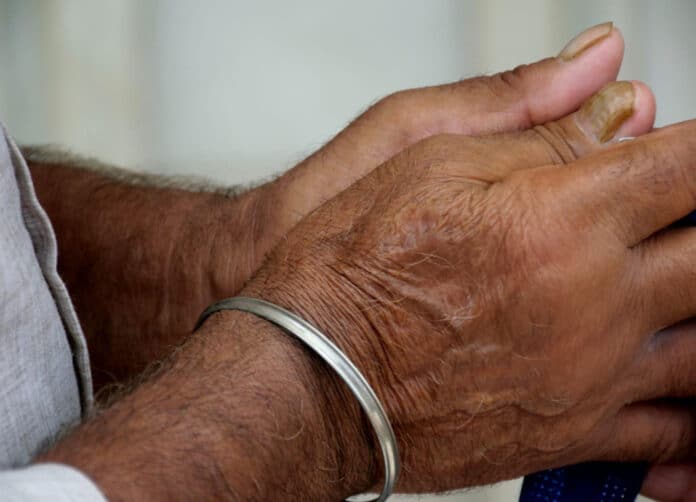Punjab, a state that endured one of the darkest chapters in India’s history between 1980 and 1996, is once again grappling with the legacy of its militancy-era violence. A series of legal verdicts, convictions of police officials, and the release of long-incarcerated Sikh prisoners known as Bandi Singhs has brought this painful past back into sharp focus. The developments mark both a judicial breakthrough and a political turning point in Punjab’s decades-long search for justice, accountability, and reconciliation.
Convictions of Punjab Police Officials in Fake Encounter Cases
Over the last two years, the special CBI court in Mohali has delivered convictions against 129 Punjab Police personnel. These range from constables to top-ranking officials such as Deputy Inspectors General (DIGs) and Senior Superintendents of Police (SSPs). Among those convicted are notable figures such as DIGs Balkar Singh Sidhu, Dilbagh Singh, Kultar Singh, Basra and SSPs Bhupinder Singh, Amarjit Singh, and Surinder Pal Singh.
The charges against them primarily relate to alleged fake encounters during the counter-insurgency operations of the 1980s and 1990s. According to CBI investigations, fabricated encounter killings were widespread, often staged to demonstrate successes against militants. Forensic analysis in many cases revealed inconsistencies—identical weapons linked to multiple encounters, mismatched shell casings, and bullet injuries inconsistent with reported firefights.
Today, 60 more officers remain on trial, and observers suggest that further convictions could follow as courts continue to adjudicate cases dating back nearly four decades.
While the police face the weight of convictions, the release of Sikh prisoners, referred to as Bandi Singhs, adds another dimension to Punjab’s transitional justice narrative. Identified for release in 2014-15, 82 out of 96 prisoners have walked free in the past five years.
The remaining 14 include seven high-profile convicts in the 1995 assassination of Punjab Chief Minister Beant Singh. This group notably includes Balwant Singh Rajoana and Jagtar Singh Hawara, whose cases continue to ignite debates about justice, forgiveness, and the political implications of such releases.
In a striking political move, Union Minister and BJP MP Ravneet Singh Bittu, who is also the grandson of Beant Singh, reversed his earlier position and announced that his family would not oppose the release of prisoners, signaling a shift in Punjab’s political discourse surrounding reconciliation.
The Punjab Police Welfare Association has voiced discontent over the convictions. According to their stance, the officers in question were “merely following orders” during one of the most violent and chaotic periods in the state’s history.
In their appeal to Governor Gulab Chand Kataria, the association sought relief measures, including the restoration of pensions for convicted officers and reassessment of their cases. The Governor has reportedly directed Chief Secretary KAP Sinha and DGP Gaurav Yadav to look into these demands.
This raises a critical question: should officers acting under state directives be prosecuted decades later, or should the state itself shoulder the responsibility for the actions committed during insurgency years?
The Role of Human Rights Activists in Exposing Fake Encounters
The convictions would not have been possible without the relentless work of human rights activists. Jaswant Singh Khalra, who famously exposed the mass cremation of unclaimed bodies in Amritsar, Tarn Taran, and Patti, remains a symbol of courage in the face of state power. Tragically, Khalra himself disappeared in 1995, allegedly abducted by police.
His investigations were later supported by Ram Kumar Narayan and endorsed by then-SGPC President Gurcharan Singh Tohra, who petitioned the Supreme Court of India. As a result, the CBI identified 2,087 cases of extrajudicial killings and registered 70 FIRs in 2001.
Although judicial progress was delayed for decades due to the need for government sanction, the Supreme Court’s intervention in 2020 finally accelerated the trials. Since then, 64 out of the 70 FIRs have been resolved, with only one resulting in acquittal—underscoring the strength of the evidence gathered.
One of the most compelling aspects of these trials has been the forensic evidence. Many alleged encounters were found to be riddled with inconsistencies:
- Victims were often shot directly in the head at close range, contradicting claims of long-distance crossfire.
- Ballistic tests showed the same weapon being used in multiple unrelated encounters.
- Shell casings did not match the firearms presented by police as evidence.
- Timing and location of deaths often contradicted the official narratives.
These findings not only undermined police accounts but also reinforced claims by families and activists that their loved ones were killed in staged operations.
The simultaneous developments—convictions of police officers and release of Bandi Singhs—have created a polarized political climate. On one side, victims’ families and human rights groups hail the convictions as long-overdue justice. On the other, police associations and sections of Punjab’s political class argue that the trials unfairly target officers who risked their lives during an armed insurgency.
The political significance of Ravneet Singh Bittu’s softened stance cannot be overstated. As Beant Singh’s grandson, his acceptance of the prisoners’ release demonstrates a shift towards reconciliation, potentially reshaping Punjab’s political consensus on militancy-era legacies.
Prominent human rights lawyer Navkiran Singh, General Secretary of the Lawyers for Human Rights International, succinctly summarized the gravity of the moment:
“The convictions of some Punjab police officials are just the tip of the iceberg of grave human rights violations at the hands of state actors… Rule of law is above all. If there is no rule of law, it gives fodder to further violence in society.”
This underscores the larger implication—Punjab’s future stability depends not only on addressing past wrongs but also on reinforcing the principles of accountability, justice, and rule of law.
Punjab’s recent developments mark a rare instance of judicial accountability in cases of state-led violence. The convictions of police officials and the release of Bandi Singhs are two sides of the same coin: one represents justice for victims of fake encounters, while the other symbolizes political will for reconciliation with Sikh prisoners.
While opinions remain divided, these parallel developments indicate that Punjab is finally beginning to confront the ghosts of its violent past. Justice, however delayed, is essential to healing wounds and preventing the recurrence of such cycles of violence. The ultimate challenge lies in balancing justice with reconciliation, ensuring that neither victims’ rights nor the sacrifices of those who fought militancy are forgotten.




